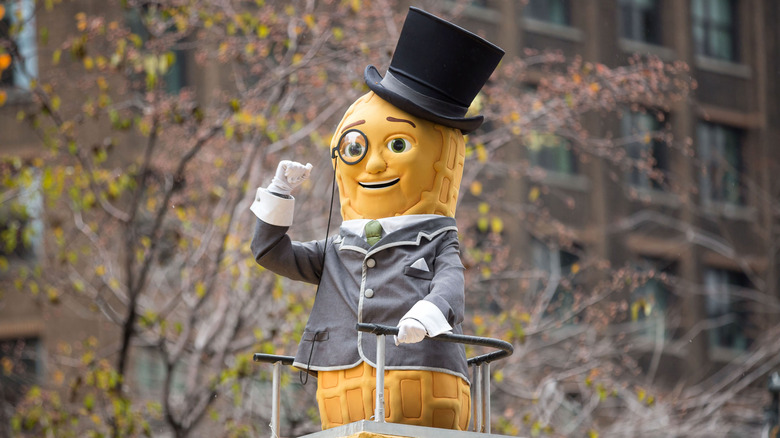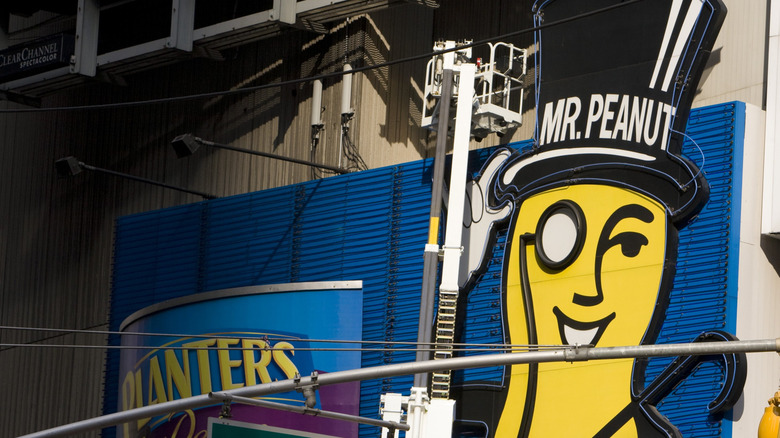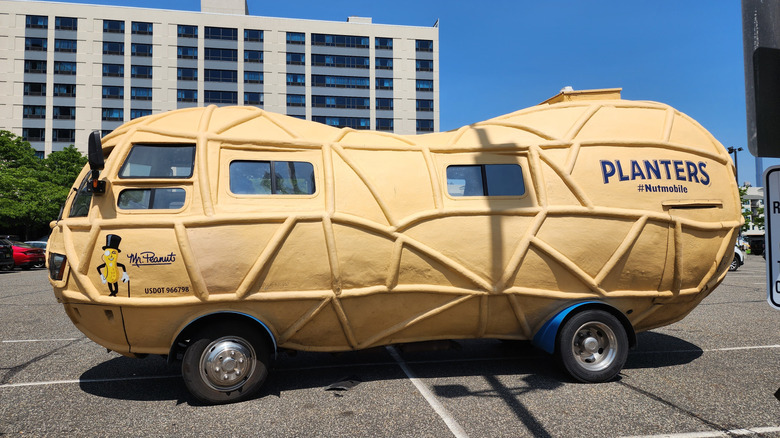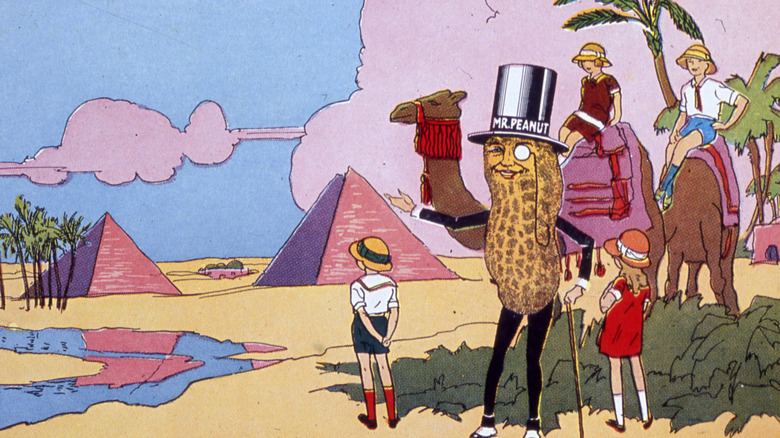The Death And Rebirth Of Mr. Peanut During The Super Bowl Changed Us All
I'll never forget it. One moment I was live-tweeting along with thousands of others during the best part of the Super Bowl (the commercials) just waiting for the halftime show, and the next I watched in shock as Mr. Peanut, the iconic monocled legume, plunged to his fiery death. A cliff, a sacrifice, and a sudden explosion, making Mr. Peanut the nut who fell to earth. Planters decided to kill off its 104-year-old mascot in a bold advertising move that left the internet reeling and upset.
For a brief, nutty moment, Mr. Peanut's demise became the most unexpected and talked about storyline of the night. Social media was flooded with memes, jokes, and confused reactions. But as quickly as the shock set in, something even more bizarre happened: during the Super Bowl, Mr. Peanut was reborn as Baby Nut, giving the world what it didn't know it needed, a new mascot blending cuteness with chaos.
What was Planters thinking? Has another food mascot ever been violently killed off by its own company? The story of Mr. Peanut's death and rebirth is as twisted as it is fascinating, involving a century of branding, a bizarre viral moment, and the resurgence of an Italian-American boy's timeless creation.
The rise of Mr. Peanut
Before we can get to the explosion (literally), we have to go back to the beginning. Mr. Peanut's story began in 1916 when an Italian-American schoolboy, Antonio Gentile, sketched the character for a branding contest held by Planters. His simple drawing of a peanut won over the judges and laid the foundation for one of the most recognizable food mascots of all time. The design was given a professional makeover by a commercial artist who later added the iconic top hat, cane, and monocle.
For decades, Mr. Peanut was the suave, sophisticated face of Planters, embodying class and charm. He became a staple of Americana, gracing advertisements, television spots, and packaging. But by the 21st century, Planters faced the same challenge as many legacy brands: How do you make something as old-school as Mr. Peanut feel relevant in a world obsessed with TikTok dances and avocado toast? Enter the 2020 Super Bowl, where Planters decided to do the unthinkable, kill its own mascot in a blaze of glory.
The death heard around the internet
In a pre-Super Bowl teaser, Planters shocked the world by showing Mr. Peanut sacrificing himself to save Wesley Snipes and Matt Walsh during a cliffhanger moment, literally. This was no quiet exit, it was a fiery explosion that left viewers stunned. Mr. Peanut's death was one of the most bizarre ad campaigns in recent memory. The ad wasn't just about saying goodbye — it was designed to spark buzz and go viral. And it worked.
But why kill him off? Planters leaned into the chaos, creating a funeral for Mr. Peanut during the Super Bowl itself. Just when we thought it was over, the commercial introduced Baby Nut, a cutesy reincarnation of the mascot that played into the internet's obsession with all things adorable (looking at you, Baby Yoda). This pivot was described by several as part meme, part mascot evolution; marking one of the strangest food advertising decisions in history.
Baby Nut, however, didn't stick around for long. Critics and fans alike were divided, with many finding him more creepy than cute. Within a year, Planters reverted back to the classic Mr. Peanut, almost as if the rebirth never happened.
The legacy of a nutty experiment
Planters' stunt raised an important question: is this the only food mascot to be violently killed off by its own company? The answer, surprisingly, is yes. Other food mascots, like the Jolly Green Giant or the Kool-Aid Man, may have had makeovers, but none have been so publicly and deliberately sacrificed.
The death and rebirth of Mr. Peanut wasn't just about shock value, it was a bold attempt to inject new life into a century-old brand. The campaign may have been divisive, but it succeeded in making people talk about Planters again. Even today, the Nutmobile rolls on, spreading cheer and nostalgia across the country. We even shared how Planters continues to keep Mr. Peanut relevant with creative campaigns, including contests and quirky promotions.
Even as Baby Nut faded into history, Planters has continued to evolve under new ownership. Hormel Foods, the parent company of Skippy, purchased Planters in 2021, bringing new opportunities for the brand to grow while keeping Mr. Peanut at the forefront of its marketing efforts. The iconic mascot remains a key part of the brand's identity, proving that even a century-old nut can stay relevant with the right reinvention. So, the next time you snack on a handful of peanuts, pour one out for the nut who fell to Earth and rose again, a true survivor in the bizarre world of advertising.



